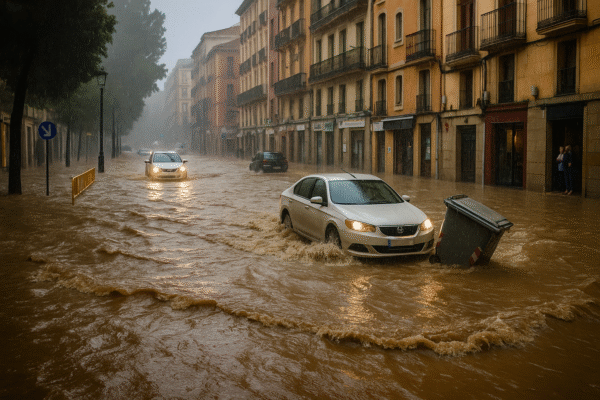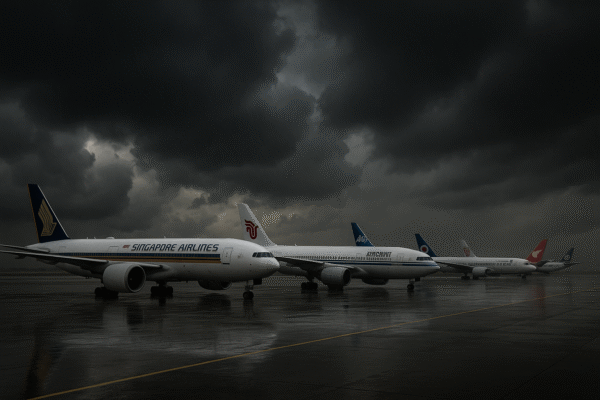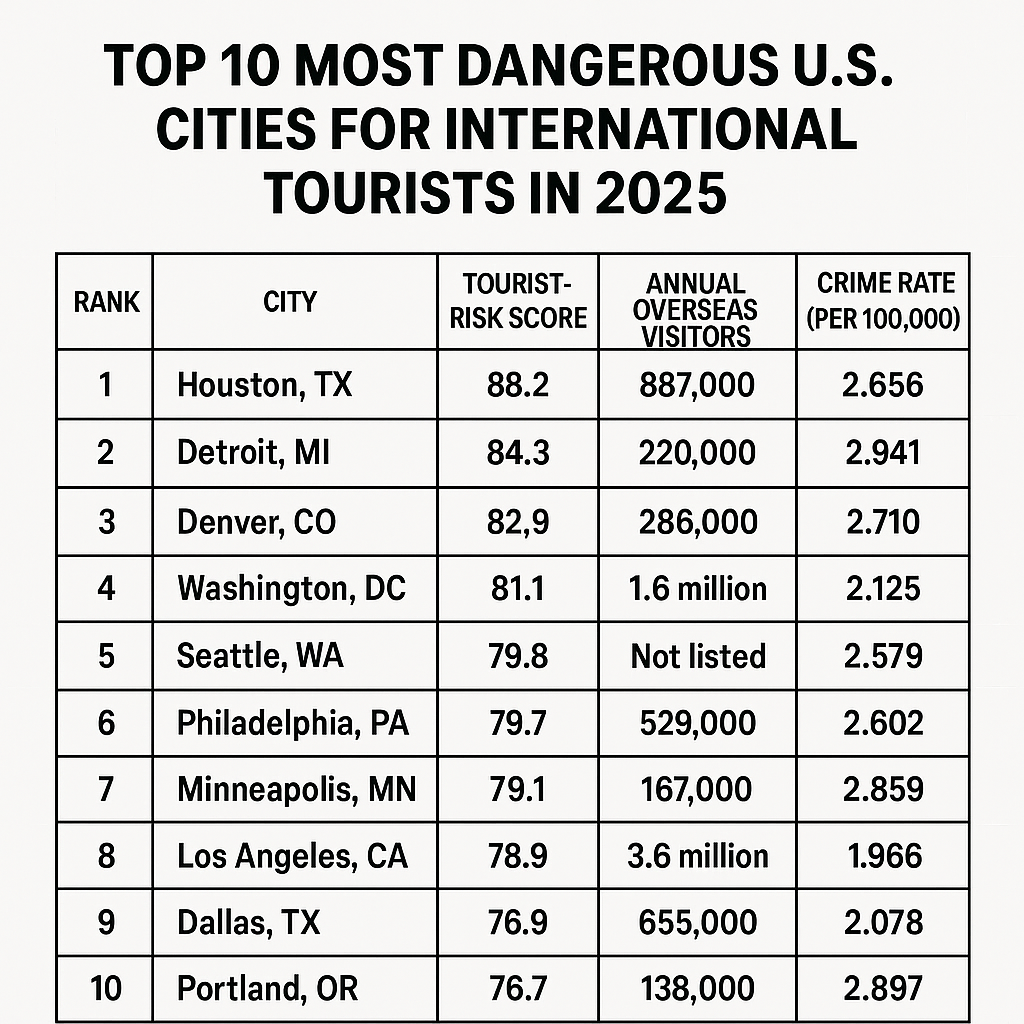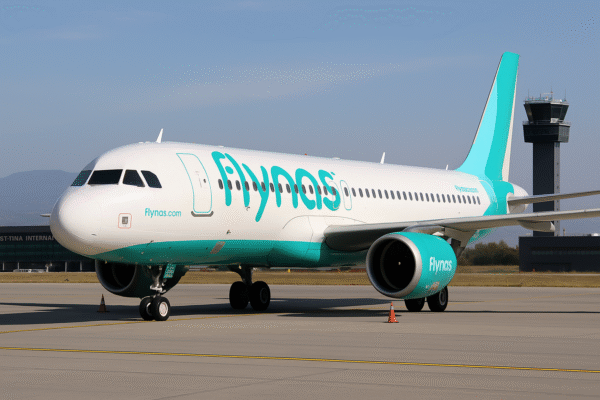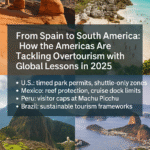Spain is currently open and safe for tourism, but heightened caution is advised following a series of natural disasters that struck some of its most popular regions in mid-July 2025. Torrential rains caused severe flooding across northeastern Spain, while a powerful 5.4-magnitude earthquake rattled southern Spain just two days later. Travelers are urged to remain alert, monitor official updates, and confirm the status of transport and accommodation ahead of any planned visit.
What Happened in Spain?
On Saturday, July 12, intense storms battered the Catalonia region, with Barcelona experiencing one of its wettest days on record. Over 155mm of rainfall fell in a single day, overwhelming drainage systems and turning urban streets into rushing rivers. Emergency services evacuated parts of southwest Barcelona, including a hospital, as flash flooding created hazardous conditions. Search and rescue efforts are still underway for two missing persons.
Just 48 hours later, on Monday, July 14, a moderately strong earthquake shook southern Spain, with its epicenter near Costa del Sol and Almería, areas frequented by both international tourists and domestic holidaymakers. While no fatalities have been reported, the quake caused structural damage to buildings, alarming both residents and visitors in this typically stable seismic zone.
Areas Under Weather Alert
AEMET, Spain’s national meteorological agency, has placed large parts of the country under active weather alerts. Key areas affected include:
- Barcelona and Girona (Catalonia)
- Zaragoza (Aragon)
- Almería and Málaga (Andalusia)
Tourists are advised to consult AEMET’s official weather alert and follow real-time advisories on hazardous conditions, including continued rainfall, possible flash flooding, and seismic aftershocks in affected regions.
Are Airports and Transport Affected?
Despite the severe conditions, Spain’s major airports remain operational. Barcelona El Prat Airport (BCN) reported minor disruptions over the weekend, with a limited number of flight cancellations to cities including Manchester, Porto, and various domestic destinations. Airport operations in Málaga (AGP) and Almería (LEI) also remain stable following the earthquake, though travelers may face delays as cleanup operations continue in surrounding areas.
No official travel restrictions have been imposed by Spanish authorities or foreign governments, including the U.S. Department of State, which has not updated its Level 2 travel advisory for Spain (which advises general caution).
Rail and road transportation in Catalonia and Aragon have experienced interruptions due to flooding, with some rural roads temporarily closed. Spain’s Renfe rail service has rerouted certain regional trains—tourists are encouraged to check updates.
Tourist Safety Tips: How to Travel Responsibly Now
If you have upcoming travel plans to Spain, experts advise the following precautions:
- Contact your hotel or rental ahead of arrival to confirm accessibility and safety conditions.
- Use official government channels such as the Spanish Ministry of the Interior and local tourism offices for real-time updates.
- Consider travel insurance coverage and clarify what weather-related disruptions may be eligible for reimbursement.
- Download emergency apps such as My112 (for Catalonia and Madrid) that notify users of local emergencies and connect directly with responders.
- Carry waterproof gear and comfortable walking shoes if touring urban areas recently hit by flooding.
Spain’s emergency infrastructure remains highly responsive. Local fire brigades, emergency medical services, and the Guardia Civil have been rapidly deployed to affected areas. Tourists are encouraged to comply with local authorities and avoid flooded zones or buildings showing visible damage.
What Travel Providers Are Saying
Airlines and tour operators have largely maintained their schedules. However, flexible rebooking policies may be offered for travelers uncomfortable with proceeding during the recovery period. Check directly with your provider to explore changes, cancellations, or travel credit options.
Hotel operators in Barcelona and Costa del Sol have assured guests that most hotels remain open, although some coastal or low-lying properties may be operating with reduced services due to cleanup operations.
The Bottom Line: Is It Safe to Travel to Spain?
Yes, travel to Spain remains safe, but the situation is fluid. Flooding in Catalonia and the earthquake in the south serve as reminders of how quickly weather and seismic events can disrupt travel plans. Travelers are urged to proceed with informed caution, stay updated via official weather and safety channels, and maintain flexibility in itineraries.
Spain continues to be one of the most resilient and well-prepared destinations in Europe when it comes to handling natural disasters. The tourism infrastructure remains strong, and authorities are actively working to restore normalcy across all affected zones.
For more travel news like this, keep reading Global Travel Wire




